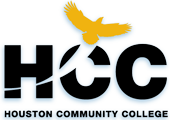|
Written by Roger Boston
|
|
It was announced 18 June, 2008, that HCC Southeast College is assembling a "super computer" cluster, made up of 16 machines each with 4 gig of RAM (expandable to much more), 3 gig dual-core processors and for each a full Tera-byte of hard drive storage. All will run under the Linux operations system. When networked with the appropriate high performance computing software, these machines become effectively a very large parallel processing array of formidable power. HCC SE is offering this powerful super computer cluster as a resource for the TORRE initiative, expecting to host some of the most difficult problems in Astronomy for solution. Cosmological simulations, animations of colliding galaxies, the birth of stars and planets, SEI, “Dark age” modeling, and many similar questions can be platformed by this super computing cluster. Watch this section of the web site for regular updates on the various problems being undertaken by this significant resource, and consider how you yourself might become involved in this kind of research effort! |
|
|
Dual Credit Astronomy at Madison High School |
 |
 |
 |
|
Written by Roger Boston
|
|
Houston Community College has just completed a first ever joint program with HISD to offer college-level "Stellar Astronomy" to high school students at Madison High school, on the city's south side. Nearly three dozen students were involved in this pilot program, earning both high school and college credits for their efforts. |
|
Read more...
|
|
Written by Roger Boston
|
|

Educational Aspects of Proposed Program - Houston Community College
HCC has offered courses in astronomy for over ten years. Recently the Texas Higher Education Coordinating Board moved all astronomy courses under the physics discipline. HCC has taken this opportunity to create a broader Astronomy Program. Four courses are presently offered with an overall enrollment of over 900 students per year. About 10% of that enrollment is in internet based courses. There are two sequences of the typical freshman astronomy year course, one is lecture only and the other lecture and lab. For the laboratory experience there is a combination of in-class exercises, using maps, planispheres, celestial spheres, and desktop planetarium software and other astronomical applications, and field observations using several telescopes, 11” and 8” Meade Schmidt Cassegrains and a GSP 10” Schmidt Cassegrain. Most of the observations are done in any of the HCC campuses of the six different colleges which comprise the HCC System. The HCC astronomy club Star Squad is fully functioning and in close relationship with other societies and clubs in the Houston area, particularly with the Fort Bend Astronomy Club, whose members run the George Observatory of the Houston Museum of Natural Sciences which is located 30 miles south of Houston within encroaching light pollution, and the North Houston Astronomy Club. Dr. J. C. Reina has been the president of this club for the past two years. HCC has hosted the Astronomy Day kick-off meeting and brought speakers from the Lunar and Planetary Institute, the Johnson Space Center, the United Space Agency and other high profile institutions in space science to this well known event. During Astronomy Day an average of two thousand visitors attend the George Observatory, located in the Brazos Bend Park and are exposed to telescopes, speakers and varied activities. Dr. Reina is a member of the organizing team.
The program proposes to enhance the experience of the students enrolled in HCC astronomy program by bringing high quality observations from a telescope at dark site directly to the computer labs at the college of at the desktops at home. The utilization of these modern remote technologies can be used to attract high school students from HISD, Spring Branch ISD, Fort Bend ISD and other within HCC and Rice service areas. Science teachers from these school districts will participate in Summer Institutes to learn about remote control and modern astronomical instrumentation. |
|
|
|
|
|